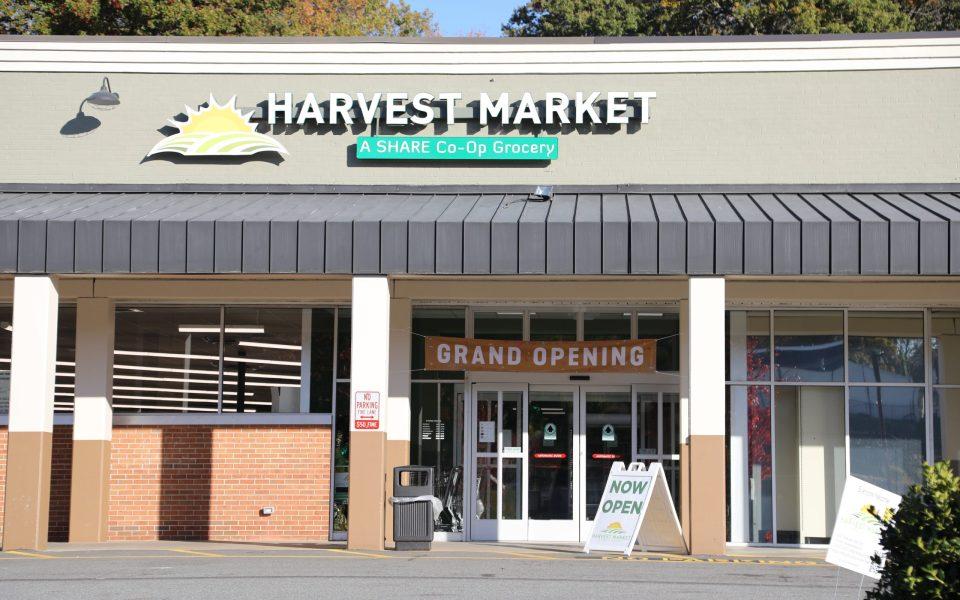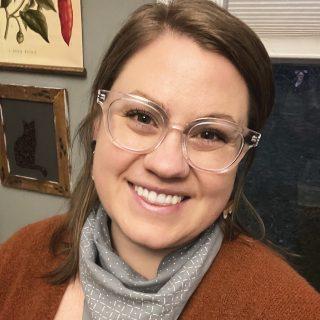A man sits on the sidewalk of Family Dollar, his belongings tumbling from broken zipper compartments on his backpack. He quietly asks patrons of the West Salem Shopping Center if they could spare some change for a bite to eat. Rev. Gary Williams, co-founder of SHARE Cooperative and Harvest Market stops without hesitation.
“Let me run back to my office and see what I can do,” he says as he walks away to gather what assistance he can.
Williams and his co-founder Rev. Willard Bass have a plan to feed Winston-Salem, and they’ve started in the parking lot of that Family Dollar.
Williams and Bass founded the SHARE Cooperative of Winston-Salem in 2016 with a mission to provide families living in food deserts reasonably priced, easily accessible and wholesome food. In October, they opened the doors of Harvest Market.
“We wanted to reach out into the community and find a project that would demonstrate our abilities across racial lines to come together,” Williams explains. “The area we discovered right away was food insecurity.”

The areas that suffer from the absence of viable, full-service grocery stores are known as food deserts, where income disparity and lack of transportation options are often barriers. According to the USDA Economic Research Service, Winston-Salem has 22 neighborhoods that identify as such. Downtown and West Salem are two of those neighborhoods.
Harvest Market, located in the West Salem Shopping Center on Peters Creek Parkway, is a full-service grocery store that fills that void.
“The West Salem Shopping Center has been in existence for many years but was starting to deteriorate,” Williams explains. “We asked the city of Winston to support us, help us improve the visibility, and to improve the viability of the area.”
Along with a $300,000 grant from the city, a loan from the Triad Regional Council and a number of grants from local philanthropic organizations such as the Kate B. Reynolds Charitable Trust, the funding for the store was met.
Continuing to share the co-op’s work with the community is a top priority, explains Williams.
“One of our principal focuses was to involve only local entities,” he says. “Everything you see down there is local. The cases were built in Lexington, the Point of Sale system is out of Boone. All of the kitchen stuff was purchased from TriMark Kitchen Supply here in Winston-Salem. We want to engage local entrepreneurs and provide local farmers a retail space to sell their product.”



Local engagement is vital for a co-op to operate successfully. The location choice of a low-income, predominantly Black neighborhood that sits between Ardmore and West Salem — where, according to realtor.com, median home prices are $320k and $235k, respectively — is intentional.
“That store is a demonstration of our community coming together,” Williams emphasizes. “We are encouraging folks to come down here and shop in our community food store. It’s us coming together to accomplish a common goal: to feed people.”
The Harvest Market is open to anyone to shop, but Williams and Bass want to encourage those who are financially able to join as member-owners. Memberships involve a one time fee of $100 for individuals, $75 for senior citizens, college and university students, and SNAP recipients, and $250 for corporate members.
The membership flier states: “Co-op owners are part of a progressive business that exists to support our community instead of focusing on profit alone. Our co-op seeks to return as much revenue as possible to the community by purchasing from local farmers, supporting local businesses, and hiring from our community. Owners help us do that.”
Members receive monthly deals, participation opportunities in the election of a Board of Directors, the right to run for the board and cooperative decisions through annual meetings.
Williams hopes the emphasis on an all-inclusive community is apparent in Harvest Market’s programs; food pharmacy being one.
“Food pharmacy allows for those who are designated having certain impediments in terms of their health to be given a prescription. That prescription is for healthy food,” Williams explains.
Williams and Bass petitioned to Blue Cross Blue Shield and were given a grant for participation.
“Patients are assessed by a health professional for diet-related disease and/or food insecurity, and then the patient is prescribed a food-based intervention (beyond nutrition education) delivered by a community-based organization,” according to the organization.
Williams continues, “We put food in these white boxes, people hand us their prescriptions, and it doesn’t cost them anything. There are so many people in our community who have health disparities, who have health issues. If we can improve their diet, we can improve their life.”



Harvest Market’s second program is SHARE Cares. If there is an emergency situation in the community, those families affected can receive a box of food.
“If a community member is hungry, we can give them a box of food,” says Williams. “At the end of the day, what we are endeavoring to do is to make sure no one in Winston-Salem is hungry.”
Both program’s sustainability are dependent on participation and support from community members.
“We need to generate income. We need to change people’s shopping habits. We need people to continue to invest in the vision, to buy food, to sign up for memberships. Our vision is to mitigate food insecurity. ‘How are they doing it?’ We’re selling food to those that can afford to buy food, so that we can take the profits and feed those that can’t afford to buy food,” says Williams.
Williams and Bass are hopeful that Harvest Market is just the beginning.
“We are the pioneers. It’s a model. The time, the investments- we wanted everything right so we can present this as a case study. This is what Winston-Salem can do.”
Harvest Market is located at 635A Peters Creek Pkwy in Winston-Salem. Learn more at share-ws.coop.
Join the First Amendment Society, a membership that goes directly to funding TCB‘s newsroom.
We believe that reporting can save the world.
The TCB First Amendment Society recognizes the vital role of a free, unfettered press with a bundling of local experiences designed to build community, and unique engagements with our newsroom that will help you understand, and shape, local journalism’s critical role in uplifting the people in our cities.
All revenue goes directly into the newsroom as reporters’ salaries and freelance commissions.


Leave a Reply